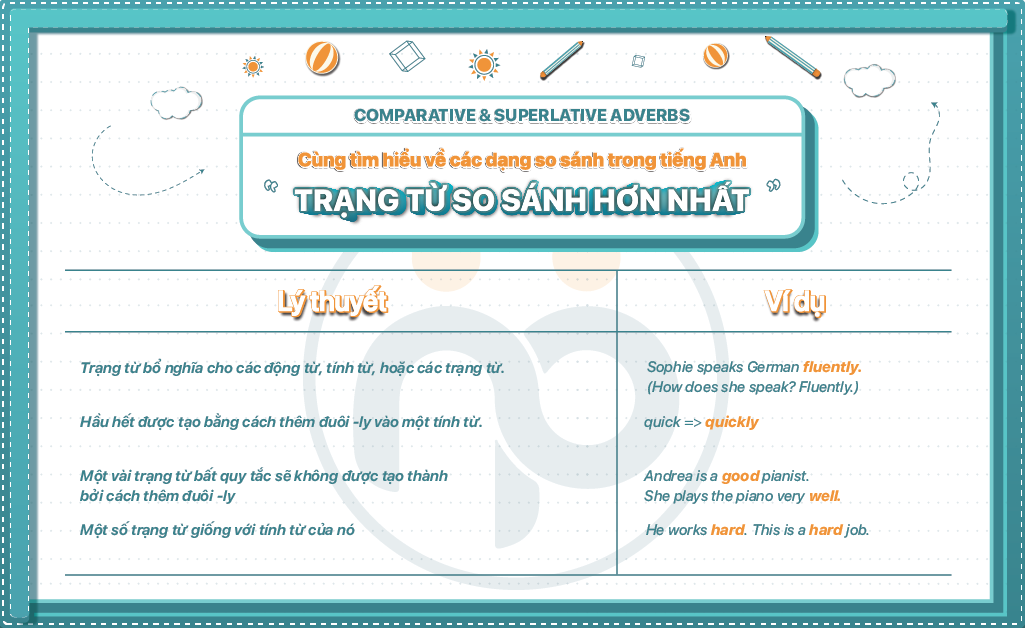Bài tuần trước, chúng ta đã được tìm hiểu về 2 loại so sánh. Tuần này cùng NP nắm chắc các loại trạng từ So sánh hơn và So sánh nhất nhé.
LÝ THUYẾT
Một số lưu ý về trạng từ
Trạng từ bổ nghĩa cho các động từ, tính từ, hoặc các trạng từ.
Ví dụ: Sophie speaks German fluently. (How does she speak? Fluently.)
Hầu hết được tạo bằng cách thêm đuôi -ly vào một tính từ.
Ví dụ: quick 🡺 quickly.
Một vài trạng từ bất quy tắc sẽ không được tạo thành bởi cách thêm đuôi -ly, ví dụ như trạng từ của good là well.
Ví dụ: Andrea is a good pianist. She plays the piano very well.
Một số trạng từ giống với tính từ của nó (daily, early, fast, hard, late, easy, etc.)
Ví dụ: He works hard. This is a hard job.
Trong văn nói, các trạng từ loud, quick, slow, cheap giống như tính từ của chúng. Trong văn viết, chúng ta sử dụng: loudly, quickly, slowly, cheaply.
Ví dụ: He speaks loud (văn nói). He speaks loudly (văn viết).
Quy tắc thêm “er”, “est”, “more”, “the most”
| Trạng từ | So sánh hơn | So sánh nhất | |
| 1 âm tiết Có dạng giống trạng từ→ Thêm –er / –est |
fastearly | faster (than)earlier (than) | the fastest (of/in)the earliest (of/in) |
| 2 âm tiết Tạo nên bằng cách thêm đuôi -ly vào tính từ→ Thêm more / the most trước trạng từ |
often safely easily |
more often more safely more easily |
the most often the most safely the most easily |
Các tính từ bất quy tắc
| Trạng từ | So sánh hơn | So sánh nhất |
| well badly far much/a lot (of) |
better (than) worse (than) farther/further (than) more (than) |
the best (of/in) the worst (of/in) the farthest/furthest (of/in) the most (of/in) |
Cả farther và further được dùng để so sánh khoảng cách địa lý
Ví dụ: I walked farther/further than my friend did.
Further (không phải farther) cũng có nghĩa là “nhiều hơn”
Ví dụ: Read a little further and it will begin to make sense.
Trung tâm Ngoại ngữ NP Education
Hotline: 086 830 0770
Hãy để NP đồng hành cùng các em học sinh trong năm học này nhé!











